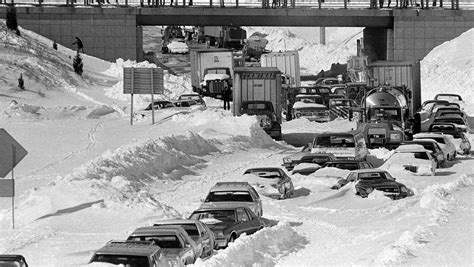Winters in the United States can be brutal, with sub-freezing temperatures, feet of snow, and icy roads that make travel dangerous. Some winters are worse than others, and some regions of the country are more prone to severe weather than others.

The Worst Winters in History
The National Oceanic and Atmospheric Administration (NOAA) keeps track of the worst winters in U.S. history, based on a variety of factors including temperature, snowfall, and wind chill. According to NOAA, the top 10 worst winters in the United States are:
- 1935-36
- 1917-18
- 1976-77
- 1984-85
- 1962-63
- 1977-78
- 1993-94
- 1974-75
- 1988-89
- 1995-96
These winters were all characterized by extreme cold, heavy snowfall, and high winds. They caused widespread power outages, transportation delays, and school closures. In some cases, they even led to deaths.
The Regions Most Affected by Winter Weather
The regions of the United States that are most affected by winter weather are the Northeast, the Midwest, and the Great Plains. These regions experience the coldest temperatures, the most snowfall, and the most severe winter storms.
The Northeast is particularly vulnerable to winter weather because it is located on the Atlantic coast. When cold air from Canada meets warm air from the ocean, it can create powerful storms that bring heavy snow and high winds.
The Midwest is also prone to winter weather because it is located in the middle of the country. Cold air from the north can easily flow into the Midwest, and it can often get trapped there by warm air from the south. This can lead to long periods of cold weather and heavy snowfall.
The Great Plains are also affected by winter weather because they are located in the center of the continent. Cold air from both the north and the south can converge on the Great Plains, creating severe winter storms.
The Impacts of Winter Weather
Winter weather can have a significant impact on people and property. Cold temperatures can lead to hypothermia and frostbite. Heavy snowfall can block roads and railways, making it difficult to travel. Ice can make roads and sidewalks slippery, increasing the risk of falls.
Winter storms can also cause power outages, which can disrupt businesses and schools. In some cases, winter storms can even be deadly.
Preparing for Winter Weather
There are a number of things that people can do to prepare for winter weather. These include:
- Staying informed about the weather forecast. This will help you to avoid getting caught in a storm.
- Having an emergency plan. This will help you to stay safe if you are caught in a storm.
- Stocking up on food and water. This will help you to stay nourished if you lose power.
- Having a warm place to stay. This will help you to avoid getting hypothermia.
- Wearing warm clothing. This will help you to stay warm in cold weather.
Conclusion
Winter weather can be dangerous, but it is also a beautiful and magical time of year. By taking the necessary precautions, you can stay safe and enjoy all that winter has to offer.
FAQs
1. What are the most common types of winter weather hazards?
The most common types of winter weather hazards are cold temperatures, snow, ice, and wind.
2. What are the health risks of winter weather?
The health risks of winter weather include hypothermia, frostbite, and slips and falls.
3. How can I prepare for winter weather?
You can prepare for winter weather by staying informed about the weather forecast, having an emergency plan, stocking up on food and water, having a warm place to stay, and wearing warm clothing.
4. What should I do if I am caught in a winter storm?
If you are caught in a winter storm, you should stay calm and seek shelter. If you are in a car, stay in the car and call for help. If you are not in a car, find a warm place to stay and wait for the storm to pass.
5. How can I help others during winter weather?
You can help others during winter weather by checking on elderly neighbors, shoveling snow for those who are unable to do so, and donating to charities that help the homeless.
6. What are the benefits of winter weather?
Winter weather can have a number of benefits, including providing water for crops and wildlife, cooling the planet, and creating opportunities for recreation.
7. What are the challenges of winter weather?
Winter weather can pose a number of challenges, including
